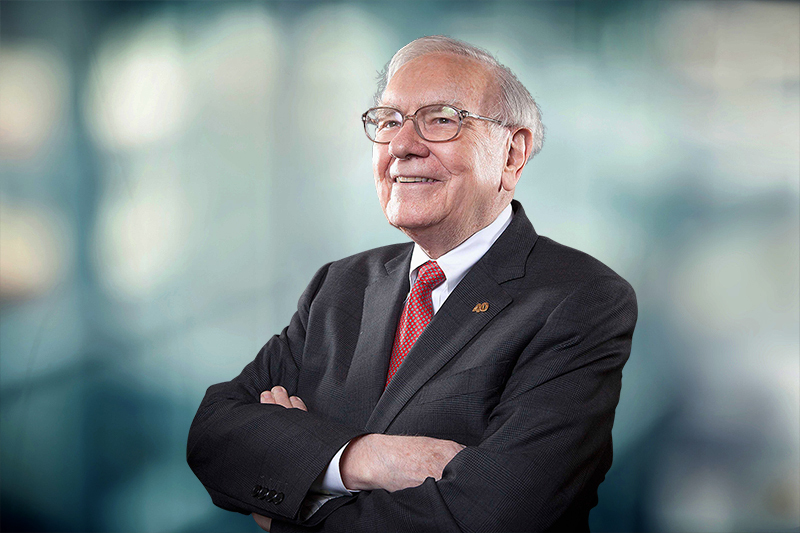Buffett announces his retirement; A Kiwi's view from Omaha
The Woodstock of Investing: Lessons from Warren Buffett’s final Berkshire Hathaway annual meeting.
Tuesday, May 6th 2025, 4:55PM
by Rupert Carlyon

Every year, tens of thousands of investors make the pilgrimage to Omaha, Nebraska, for what’s become known as the “Woodstock of Capitalism”—the Berkshire Hathaway annual meeting (AGM). In 2025, more than 30,000 people showed up in person, with millions more tuning in via CNBC.
But this year’s gathering was especially significant. It marked the end of an era. Warren Buffett—known globally as the Oracle of Omaha—formally stepped down as CEO of Berkshire Hathaway, the world’s tenth largest company (or moreso an investment conglomerate). After more than 60 years of investment leadership and wisdom-sharing, this was his final act.
Buffett has never relied on flash or hype. His appeal comes from his ability to explain complex ideas simply and candidly. For over four decades, he’s used the AGM stage to reflect on markets, share lessons, and field questions with dry humour and humility. It’s why advisers, everyday investors, and finance fans—right here in New Zealand—hang on his every word.
1. Buffett’s Rules for Smart Investing
Be Patient—But Ready to Move
Buffett is holding a record US$340 billion in cash—about 150% of New Zealand’s GDP. Why? Because he doesn’t see any compelling opportunities right now. “You don’t invest just because you have money,” he said. “Wait for the right opportunity.”
But when that opportunity comes, you swing hard to make sure you get it quickly.
The key, especially for Kiwi investors, is knowing that sometimes the smartest move is to wait. And when the time comes, act decisively.
Keep Emotions Out of It
“If Berkshire stock dropped 50%, I wouldn’t panic,” Buffett said. “I’d want to understand why—and maybe buy more.” His approach? Rational, measured, and totally unemotional. His words: "emotions have no role in investing - if you can't check your emotions at the door you shouldn't be an investor."
It’s a reminder to New Zealand investors: markets go up and down. Don’t treat volatility like a crisis. Treat it as part of the game.
Do the Work
Opportunities don’t land in your lap. Buffett said you need to “turn every page” to find them—and those who do won’t tell you what they found. So don’t wait for someone else’s tip. Research, dig, and stay curious.
Focus on the Long Term
If you’re thinking about next quarter’s results, you’re missing the point. Buffett only invests when he can picture where a business will be in 10–20 years. He also avoids anything that hinges on government decisions—too unpredictable.
Lesson for us: if an investment’s future relies on politics or short-term hype, it’s probably not for you.
Know When to Back Yourself
Once you’ve done the mahi, back yourself. Buffett’s advice: make the call with confidence. Investing is no place for self-doubt.
2. America: Strong but Vulnerable
Buffett is bullish on the US. He called it “the best country in the world,” citing its transformation from an agrarian society to a global powerhouse. “Anyone born in America should count themselves extremely lucky,” he said.
But he’s worried. The US budget deficit is running at 7%—and that’s not sustainable. Theory suggests that deficits of this size eventually lead to out of control inflation. The real risk? A loss of faith in the US dollar. If governments keep printing money, they could damage long-term investor confidence in the US dollar and US dollar denominated assets.
For Kiwi investors with US exposure, it’s a timely warning. Diversification and discipline remain key.
3. Markets Are Unpredictable—And That’s OK
Buffett summed it up perfectly: “We have no idea what markets will do tomorrow, next week, next month or next year.”
He has little time for commentators who claim otherwise. His edge? Sitting on cash until markets get scary. During the Global Financial Crisis, he jumped on deals with Goldman Sachs, Ford, and American Express—netting huge returns.
Today? He’s still waiting. “People aren’t scared enough yet,” he said. For Kiwi investors, it’s a reminder: don’t chase hype. Wait for value.
The conclusions
The implications of Buffett’s parting are clear. Whether you’re managing your KiwiSaver, investing on your own, or guiding others, here’s what to remember:
- Investing is tough – It takes patience, discipline, and nerves of steel. If that’s not your style, consider a managed fund and let the professionals handle it.
- Volatility is normal – Markets wobble. That doesn’t mean something’s wrong.
- Never write off the US – It remains the world’s most powerful economic engine. Betting against it has never paid off.
What’s Next for Berkshire?
Buffett hands the reins to Greg Abel, who has run Berkshire Hathaway Energy for over 20 years and who he anointed his successor back in 2021. He’s an operator, not an investor—but Buffett reckons that’s exactly what the company needs right now with almost 50 large companies under his ownership.
Time will tell if Abel can fill those legendary shoes. But one thing’s for sure: the investing lessons from Buffett’s final AGM will stick with us for years.
From Omaha to Aotearoa, the message is clear—investing takes courage, patience, and clarity. And for Kiwis watching from afar, that’s timeless advice.
This was an amazing event that I was particularly lucky and proud to be a part of. This event will go down as one of the most important days in investment history – the resignation of the Oracle of Omaha – Warren Buffet!
Rupert Carlyon is the founder and managing director of Kōura Wealth.
| « Sky TV's Rights Negotiation goes into Extra Time | Calming influences » |
Special Offers
Comments from our readers
No comments yet
Sign In to add your comment
| Printable version | Email to a friend |









